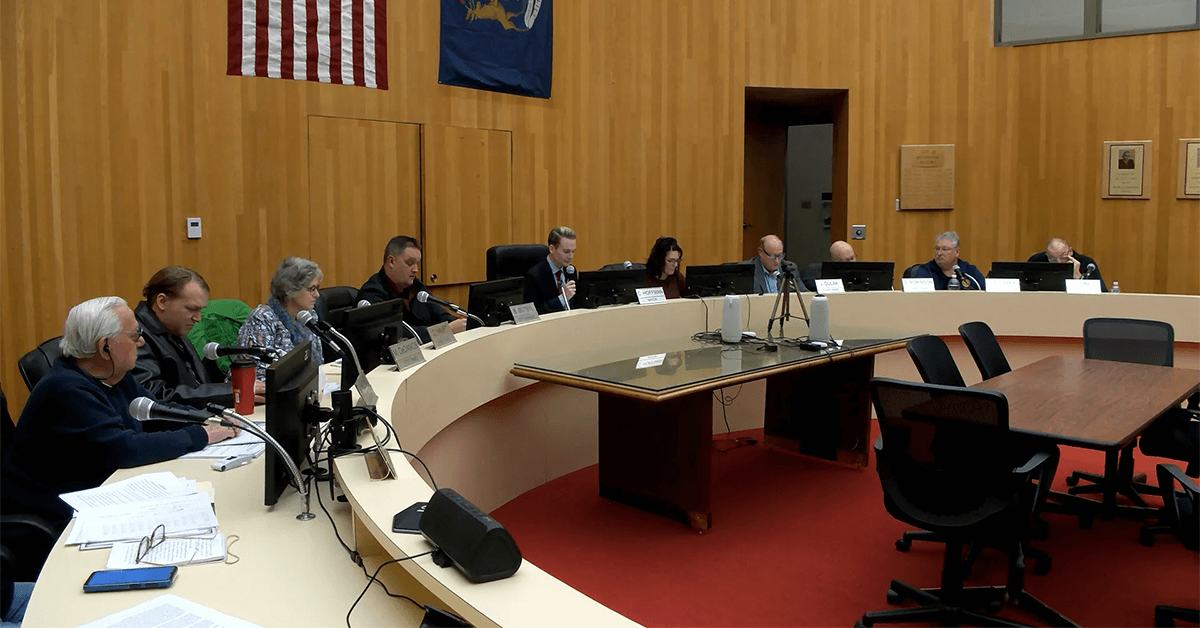Detroit Cannabis Companies Seek Court Relief to Open $15 Million Facility

Four cannabis businesses have initiated legal action against the city of Detroit in federal court, seeking to halt any measures that could delay the launch of their $15 million marijuana processing facility. The companies argue that without the ability to operate as intended, they face imminent financial disaster.
The legal challenge stems from the city's retraction of previously granted approval for the facility, located close to a school, which the businesses contend violates their due process rights under the Fourteenth Amendment. This action followed substantial investments made by the companies, based on city assurances and the issuance of special land use permits for marijuana processing and transportation.
In their court filing, the companies—Cannabis Professional Design LLC, MB City Transportation LLC, HZ Detroit Holdings 1 LLC, and HZ Detroit Holdings 2—request a preliminary injunction to permit the opening and operation of their facility. They disclose investments nearing $1.89 million, part of the facility's estimated $15 million construction value, arguing this amount could lead to their financial collapse if the facility remains closed.
The motion emphasizes the critical nature of the injunction, suggesting even temporary operation could significantly improve their financial standing. The companies have yet to generate revenue from the facility, highlighting the potential for a single month's production to cover a substantial portion of their expenses.
In response, the city of Detroit has urged the court to reject the injunction, arguing the companies have not demonstrated a risk of "irreparable injury" and suggesting that the facility's proximity to a school could harm students.
However, the companies counter this by referencing approval letters from the city that confirmed the facility's operation would not negatively impact the community. They also noted investments in infrastructure improvements, including a second-floor construction and the installation of specialized machinery.
The legal battle began with a state court lawsuit in November, later escalated to federal court, over the city's revocation of permits granted over two years. These permits were essential for the facility's operation but were invalidated in October when the city reclassified the land as a "drug-free zone" due to its proximity to a nearby school.
The city's later filings revealed that the revocation occurred after it recognized the school's proximity to the proposed facility—a detail missed during initial reviews due to the school's industrial-looking appearance and location in a zone typically not permitting educational institutions.
This dispute highlights the complex interplay between cannabis business operations, municipal regulations, and community safety concerns, particularly regarding proximity to schools and the enforcement of "drug-free zones."
Court Proceedings for Camden Marijuana Store Robbery Suspects Adjourned

A court session for the ongoing case against four individuals from Battle Creek, accused of a robbery at a marijuana store in Camden on January 31st, has been postponed to February 28th.
The suspects, identified on February 2nd as 19-year-old Dontay Dequan Banks, 23-year-old Treshaun Omeirr Boykins, 18-year-old Milton Tyier Hudson, and 18-year-old Jeremiah Javon Smith, face multiple charges. These include breaking and entering with the intention of theft, conspiracy to commit breaking and entering, receiving and concealing stolen goods, fleeing police in the third degree, and resisting arrest.
During their arraignment on February 2nd in the 2B District Court, held via video link from Hillsdale County Jail, each suspect was formally charged and assigned a court-appointed attorney.
The incident unfolded in the early hours of January 31st, prompting a response from the Michigan State Police to an alarm at The Pinnacle Emporium, located at 421 S. Main St., Camden. Upon arrival, officers discovered the four men and an accompanying juvenile in a white 2018 Kia parked outside the premises.
When police attempted an arrest, the suspects fled, leading to a high-speed pursuit that stretched from Michigan into Ohio, then west into Indiana, with speeds exceeding 100 mph. The chase concluded in southern Branch County, Michigan, where a precision immobilization technique (PIT maneuver) was executed to stop the vehicle just south of Calhoun County.
After the vehicle was stopped, all four suspects attempted to flee on foot but were quickly apprehended by the police. The juvenile involved was released to his parents, while the adults were initially taken to the Branch County Jail before being transferred to Hillsdale County Jail.
In court, Judge Megan Stiverson highlighted Hillsdale County Court's new Community Corrections Program, labeling the defendants as "low-risk" for future court appearances, noting their lack of prior criminal records. Consequently, Stiverson granted each a personal recognizance bond, mandating their compliance with the Community Corrections Program's supervision.
If convicted of the charges, each suspect faces a potential sentence of up to 10 years in prison.
Calhoun County Sheriff's Office Seeks Public's Help to Identify Dispensary Burglars

Early on Monday morning, a break-in occurred at the Aim High Meds marijuana dispensary in Tekonsha Township, Calhoun County, triggering an urgent call for public assistance to identify the culprits. Just before 5:30 a.m., the establishment's alarm system was activated, alerting local law enforcement to the incident. Upon arriving at the scene, deputies from the Calhoun County Sheriff's Office discovered signs of forced entry and noted that various items had been stolen from the business.
Investigation efforts were aided by surveillance footage, which revealed four masked individuals as the primary suspects in this burglary. These individuals were seen departing the scene in a red Kia SUV, last observed heading northbound on Interstate 69. The authorities are now seeking assistance from the community to track down these suspects and recover the stolen property.
The Calhoun County Sheriff's Department is urging anyone with information related to this crime, the whereabouts of the suspects, or the location of the red Kia SUV to come forward. Members of the public can contact the Calhoun County Sheriff's Office directly at 269-781-0880 or provide anonymous tips through Silent Observer at 269-964-3888. This collaborative effort between law enforcement and the community aims to ensure the swift apprehension of the perpetrators and the reinforcement of safety and security within the local area.
Detroit Grandmother Exposes Illegal Marijuana Sales to Minors

In a determined effort to address illegal marijuana sales to minors, a Detroit grandmother, Vivienne Miles-Jackson, orchestrated an undercover operation to gather evidence against a local hookah shop accused of selling cannabis to her 15-year-old grandson. The establishment, Detroit Hookah, located on the east side of Detroit and in close proximity to John J. Pershing High School, has no license to distribute marijuana, raising significant concerns over the safety and legality of its operations.
Motivated by a deep concern for the well-being of her grandson and potentially other minors, Miles-Jackson equipped her grandson with a camera to document his purchase of marijuana from the shop. This strategic move was aimed at securing incontrovertible proof of the illegal transactions purportedly taking place at the establishment.
Upon successfully capturing the transaction on video, where her grandson was shown exchanging money for a sealed package of marijuana, Miles-Jackson promptly reported the incident to the Detroit Police Department (DPD), providing them with the recorded evidence. The subsequent police investigation into Detroit Hookah unveiled a startling discovery: the seizure of over 11,000 grams of marijuana, an amount likened to a garbage bag full of the substance, as stated by DPD Commander Eric Decker.
Despite the shop owner's absence during a visit by reporters and his cousin's dismissal of the video as a setup, claiming no weed is sold at the shop, the police's findings underscored the gravity of the situation. Commander Decker highlighted the initial steps taken against the business owner, including the issuance of several tickets, and hinted at the possibility of further action pending a comprehensive investigation.
This case emerges amidst a broader crackdown on illegal activities in establishments such as gas stations, convenience stores, and hookah lounges by DPD's revamped Vice Enforcement unit. The unit's proactive approach involves regular inspections and undercover operations to ensure compliance with licensing requirements, aiming to curb illicit practices like the unlicensed sale of marijuana.
The ongoing investigation into Detroit Hookah serves as a stark reminder of the challenges facing law enforcement and communities in safeguarding minors from illegal drug transactions, as well as the crucial role of vigilant citizens in assisting police efforts to uphold the law.
Menominee City Council Proposes Full Settlement to End Marijuana Lawsuits

In a significant development within the Menominee city council's ongoing legal entanglements with local marijuana dispensaries, a special meeting held on Wednesday night indicated potential strides towards resolving disputes that have spanned years. The meeting, which was not open to the public, concluded with the council members announcing their decision to reject a partial settlement proposal from two dispensaries, Rize U.P. and The Fire Station (TFS), who are currently suing the city. Instead, the city has proposed a comprehensive settlement offer, aiming to put an end to the legal battles.
This move comes after a judge mandated mediation between the parties at the start of the year, with the dispensaries proposing a partial settlement in late January. The timing of these negotiations is crucial, as the license renewals for Rize and TFS are approaching on February 29th. An intriguing aspect of the renewal process is a requirement for applicants to withdraw any ongoing lawsuits against the city to secure their operational status, thus putting pressure on the dispensaries to find a resolution.
Councilmember Michael Dedamos voiced a reluctance to see any parties severely impacted, emphasizing a preference for negotiation over any loss of licenses or employment. The initial offer from Rize and TFS included dropping all claims except those related to the Michigan Regulation and Taxation of Marijuana Act. In return, they sought stricter zoning laws, special allowances, and exemptions for current dispensaries, which would essentially allow them to maintain a dominant market position.
Mayor Casey Hoffman expressed a firm stance against accepting any settlement that would unduly favor the suing dispensaries, labeling the initial proposal as a "Trojan Horse." The counter-offer made by the city reportedly encompasses a full settlement of all claims and introduces terms that might allow dispensaries to relocate, albeit with restrictions on possible locations.
The response from other local dispensaries has been mixed, with some advocating for a hard line against the suing parties to prevent undue advantages. Public comments at the meeting reflected a broad spectrum of views, with some emphasizing the need for resolution and others criticizing the proposed settlement for offering unilateral benefits to Rize and TFS without adequate returns for the city.
The legal stance of the city, as articulated by council members and reflected in public sentiment, underscores a collective desire to conclude the lawsuits without compromising the city's interests or the competitive landscape of the local marijuana industry. As negotiations continue, the outcome of this dispute will likely have significant implications for the regulatory and operational dynamics of marijuana dispensaries in Menominee.
The city's counter-proposal aims to balance the need for regulatory compliance and fair competition among dispensaries. As the community awaits a response from Rize and TFS, the resolution of this conflict could mark a pivotal moment in the city's relationship with its marijuana businesses.
SEC Continues Legal Battle Against Michigan Cannabis Fraud Case

In a significant development within the Michigan legal landscape, the Securities and Exchange Commission (SEC) is persisting with its fraud case against Robert Shumake, Jr., despite facing challenges related to bankruptcy claims and the uncertain prospect of financial restitution through fines. The case, which has garnered attention due to its implications for investor protection and the integrity of crowdfunding initiatives, underscores the complexities of enforcing securities law in the burgeoning cannabis industry.
The Allegations Unfold
The crux of the SEC's allegations, first brought to light in 2021, involves fraudulent activities connected to unregistered crowdfunding offerings. Robert Shumake, Jr., along with Nicole Birch and Willard Jackson, is accused of orchestrating deceptive schemes through their involvement with two companies: Transatlantic Real Estate and 420 Real Estate. These entities were purportedly engaged in the cannabis and hemp sectors.
The SEC's complaint details how Shumake, in collaboration with Birch and Jackson, managed to raise substantial sums from retail investors—$1,020,100 through Transatlantic Real Estate and $888,180 via 420 Real Estate. However, instead of channeling these funds towards their stated investment purposes, the trio allegedly diverted them for personal use, betraying the trust of their investors.
The timeline of these unauthorized securities offerings spans from September 2018 through June 2020, with Shumake purportedly playing a pivotal role in both ventures. His attempt to conceal his involvement, due to a prior criminal conviction related to mortgage fraud, involved positioning Birch and Jackson in leading roles within the respective companies, thus maintaining a facade of legitimacy.
Legal and Financial Entanglements
Complicating the SEC's efforts to hold Shumake accountable is his strategic maneuver to declare bankruptcy, a move that potentially shields him from financial penalties. The SEC, however, argues that its enforcement actions are exempt from bankruptcy protections, emphasizing its mandate to safeguard investors and maintain market integrity. The agency contends that its pursuit of justice in this case falls within its "police power," a principle that transcends the limitations typically imposed by bankruptcy proceedings.
Adding a layer of intrigue to the proceedings is Shumake's decision to legally change his name to Bobby Shumake Japhia in May 2023. The SEC's attempts to adapt its documentation to reflect this change have been hampered by a lack of cooperation from Japhia's legal counsel, further complicating the legal landscape.
The Path Forward
As the case progresses, the departure of Japhia's legal representation due to unpaid bills underscores the financial instability surrounding his defense. The law firm's withdrawal, citing debts exceeding $36,000, signals a turbulent phase in the litigation process. Despite these challenges, the SEC remains committed to its mission of penalizing and preventing fraudulent activities within the securities market, highlighting the case's broader implications for regulatory oversight and investor protection.
This ongoing legal battle not only emphasizes the regulatory challenges associated with crowdfunding and investment in the cannabis sector but also serves as a cautionary tale for investors and industry stakeholders about the importance of due diligence and the risks of fraudulent schemes.


 Helpful Links
Helpful Links